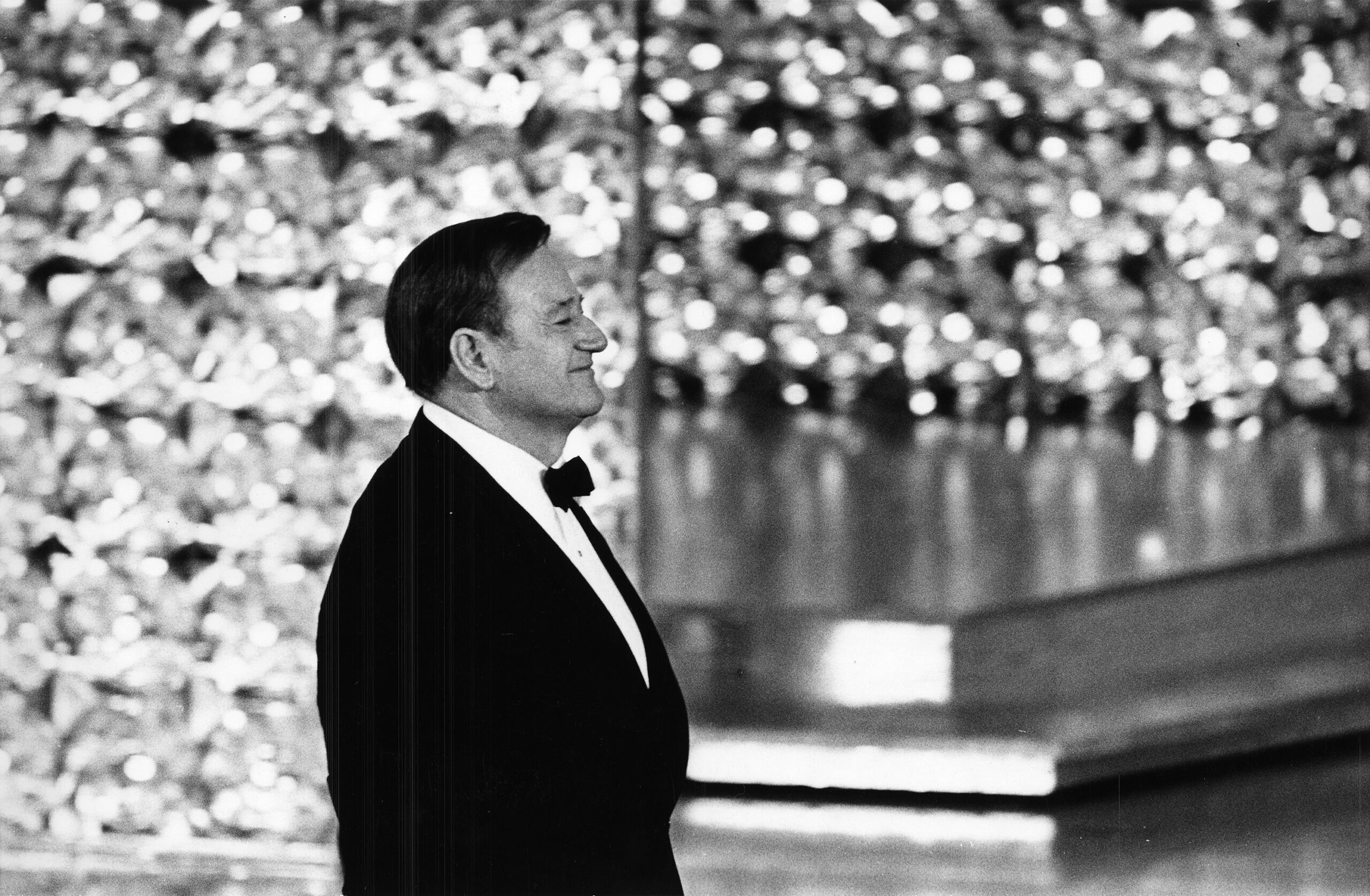In the 1970s, Duke stays close to an adoring public while continuing his work in Hollywood and cementing his status as an American icon.
Written by Constance Dunn
In April 1970 while accepting his Best Actor Oscar for True Grit (1969), John Wayne strode to the stage at the Dorothy Chandler Pavilion and wiped a tear from his eye. His words were characteristically succinct and sincere, including, “I feel very grateful, very humble, and all thanks to many, many people.”
By then Duke was 63 years old and had been in the business for five decades—yet his film output and popularity remained formidable. He continued a record streak of annually being included in the Top 10 of Quigley’s Top Ten Money Making Stars Poll—a rare distinction for an actor whose career started in the silent era. (Wayne was part of Quigley’s influential Hollywood Top 10 list for 25 years, lasting until 1973—longer than any other star in history.)
Off screen Wayne remained committed to friends, fans, and his family—which now included seven children—and his favorite public causes, notably politics and the fight against cancer. Film highlights of the decade were Big Jake (1971) and The Cowboys (1972), which today are often cited as favorites among Wayne fans.
“He was kind, positive and fair. And those are great lessons I got from him—we all got from him. That’s the John Wayne I want the world to know.” -Ethan Wayne
As the 1970s went on Duke appeared in fewer films, but his still-eager public got to see the star in his regular appearances in TV specials and on shows, including The Tonight Show Starring Johnny Carson and the popular Rowan & Martin’s Laugh-In, where he made 10 appearances.
While his box office appearances may have become less frequent, the quality of a John Wayne picture remained strong. Nearly half a century after his first starring role, in Raoul Walsh’s The Big Trail (1930), Duke would round out a legendary—and still unparalleled Hollywood career—with The Shootist (1976). The film, starring Wayne as J.B. Books, a grit-filled and principled gunslinger dying of cancer, was yet another career high note for the actor. It earned an Academy Award for Best Art Direction, a Golden Globe for Best Supporting Actor and was also included among the Top 10 films of the year by The National Board of Review of Motion Pictures.
Life would imitate celluloid several years later when Wayne was found to be suffering from a cancer relapse, discovered in January 1979 during an operation. Years earlier in 1964, Duke had successfully battled lung cancer, but this time the cancer was more pervasive—discovered in his stomach and gastric lymph nodes—and thought to be spreading rapidly.
The months that followed included high-profile nods to John Wayne the American icon. He received a Congressional Gold Medal from President Carter. (A year after his death, Duke would receive a Presidential Medal of Freedom, becoming one of the few people who have been awarded both superlative national honors.) In April he received a warm, enthusiastic standing ovation at the Academy Awards—his last public appearance.
On the eve of June 11, 1979, John Wayne passed away from cancer at age 72, surrounded by his family. In life and death, he remains known the world over—via his tremendous output of 200 films made during a 50-year career—for personifying the American ideals of courage and faithfulness to one’s beliefs no matter the cost. Those who knew Duke personally also remember this man, albeit one whose real-life demeanor included a signature warmth and judiciousness. “He was kind, positive and fair,” recalls son Ethan Wayne. “And those are great lessons I got from him—we all got from him. That’s the John Wayne I want the world to know.”



